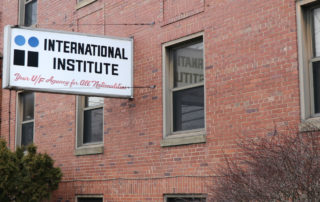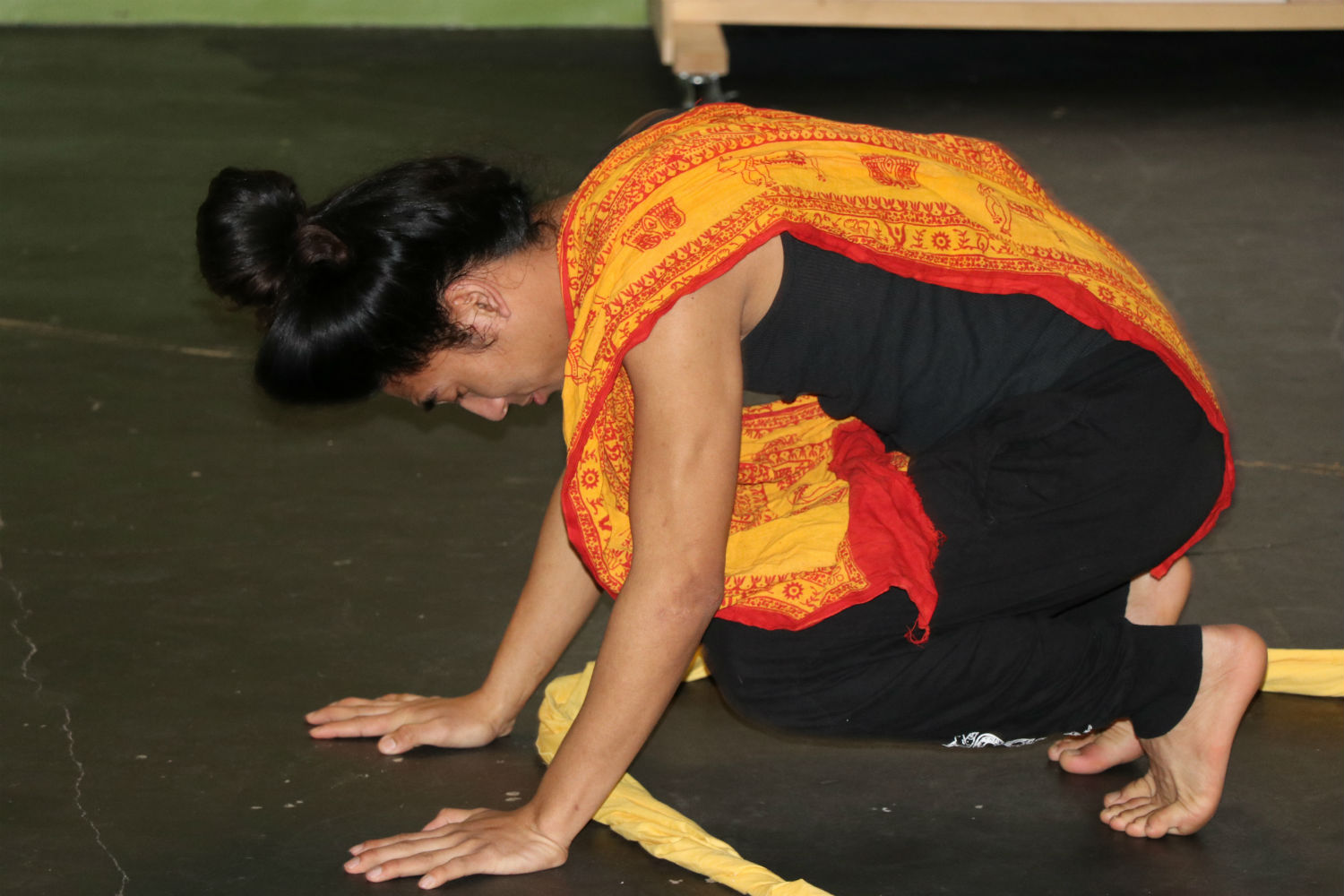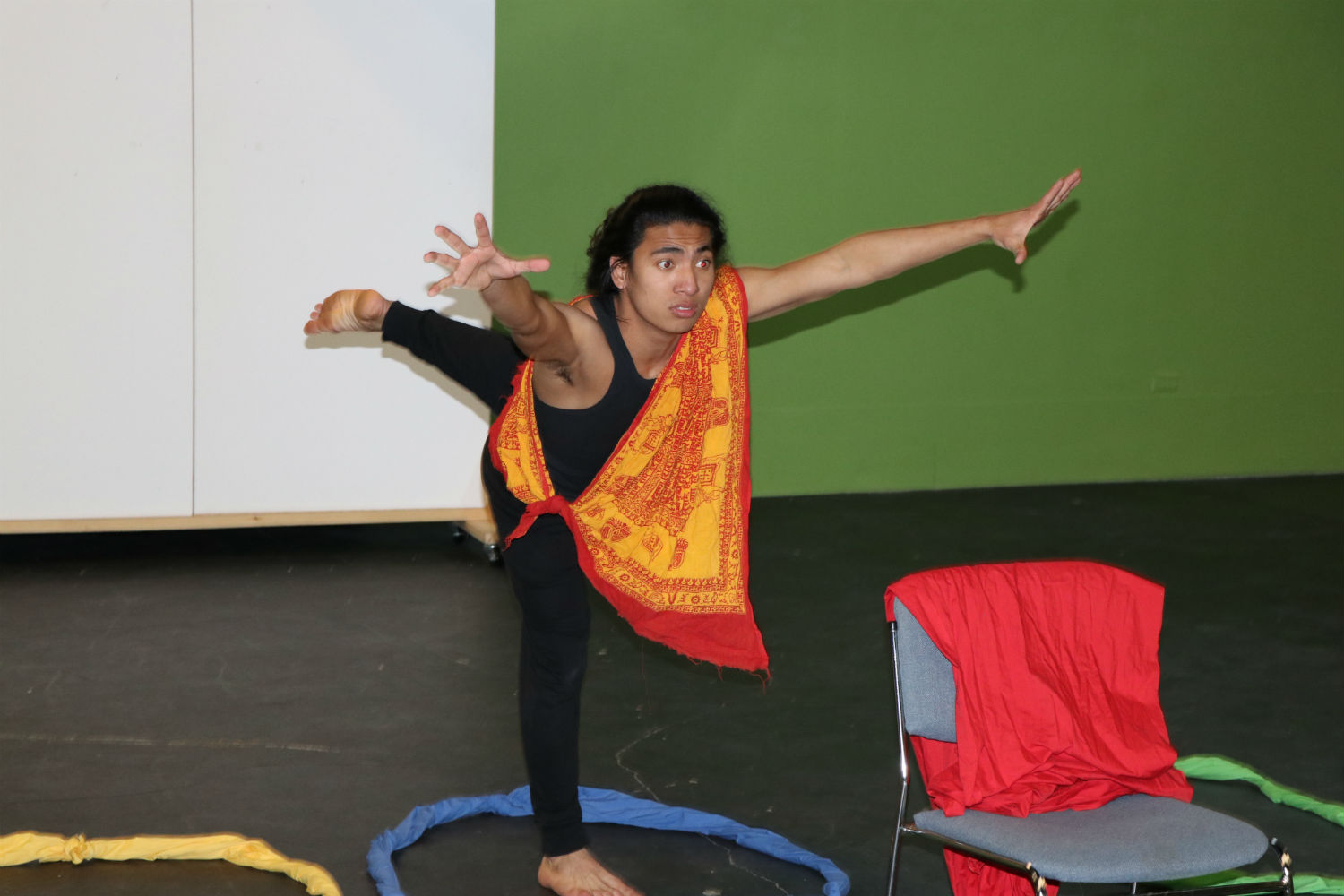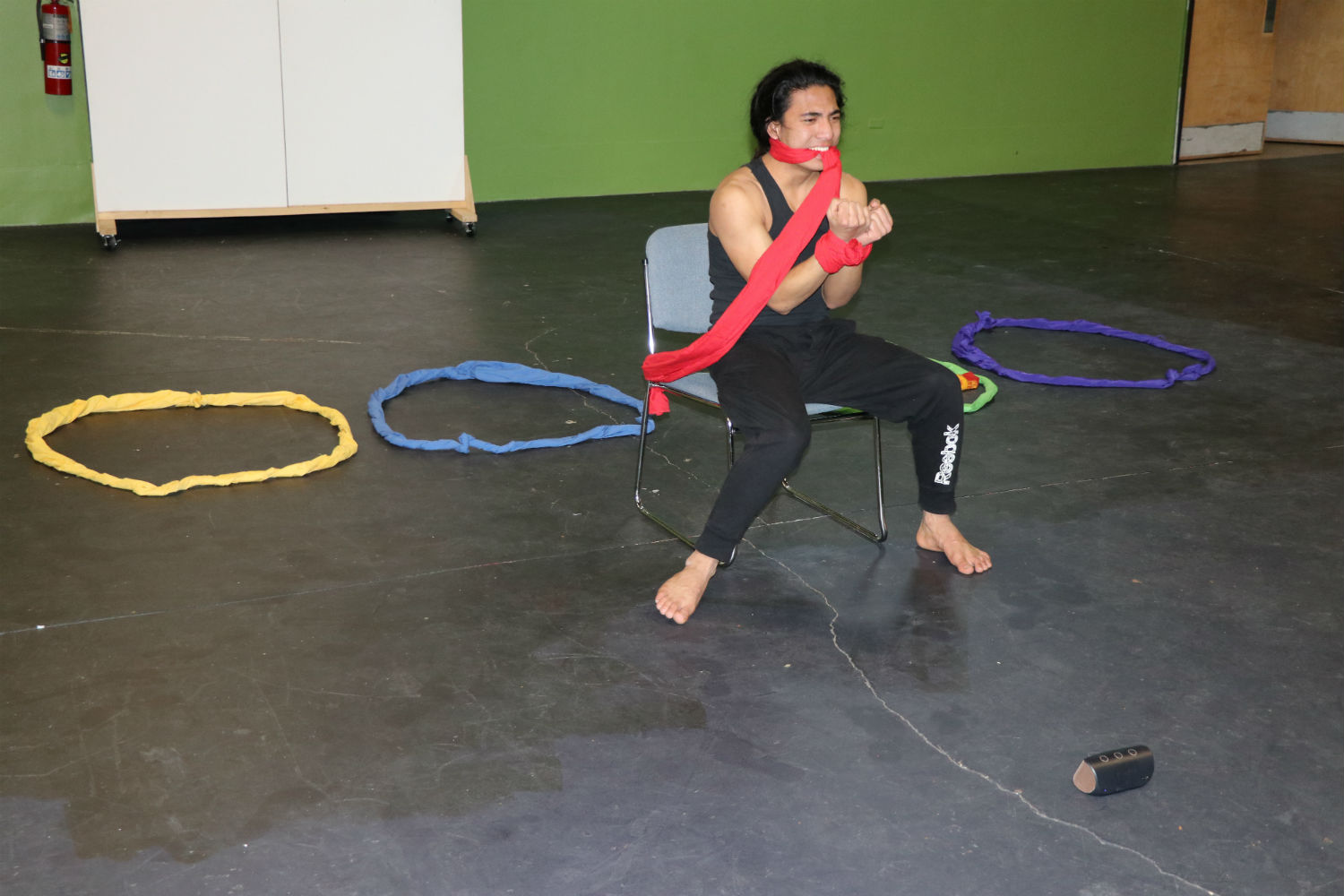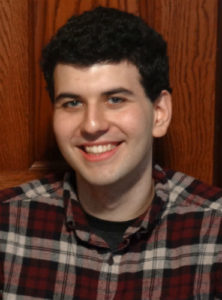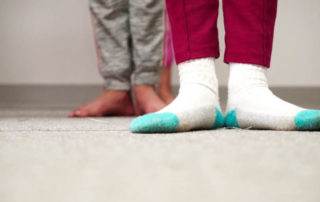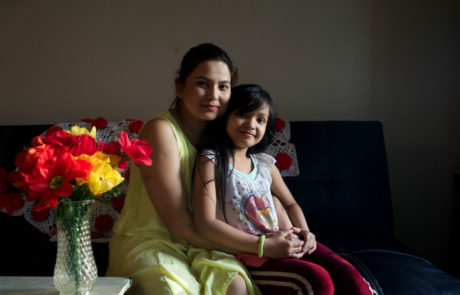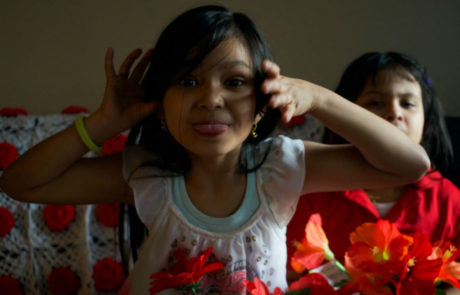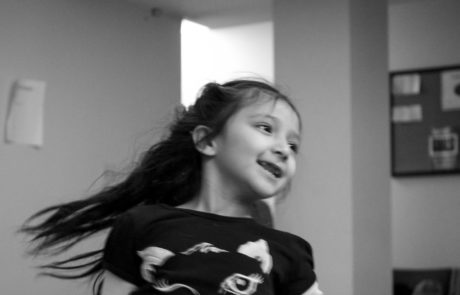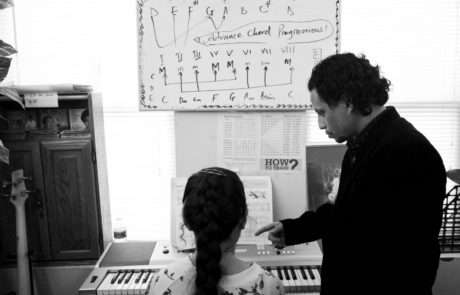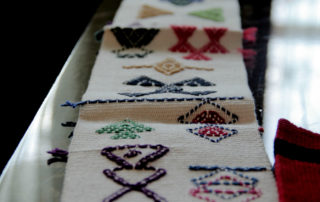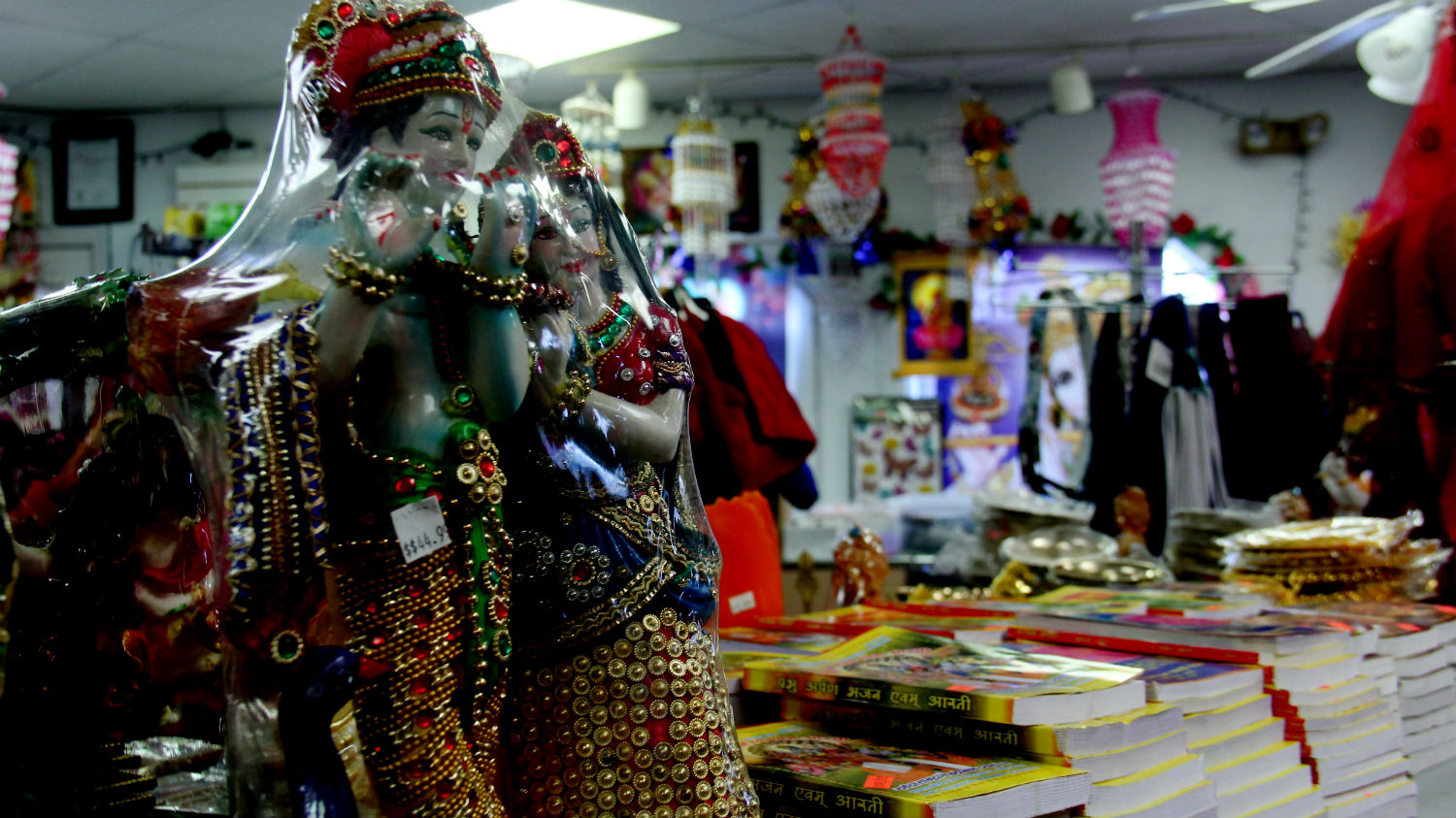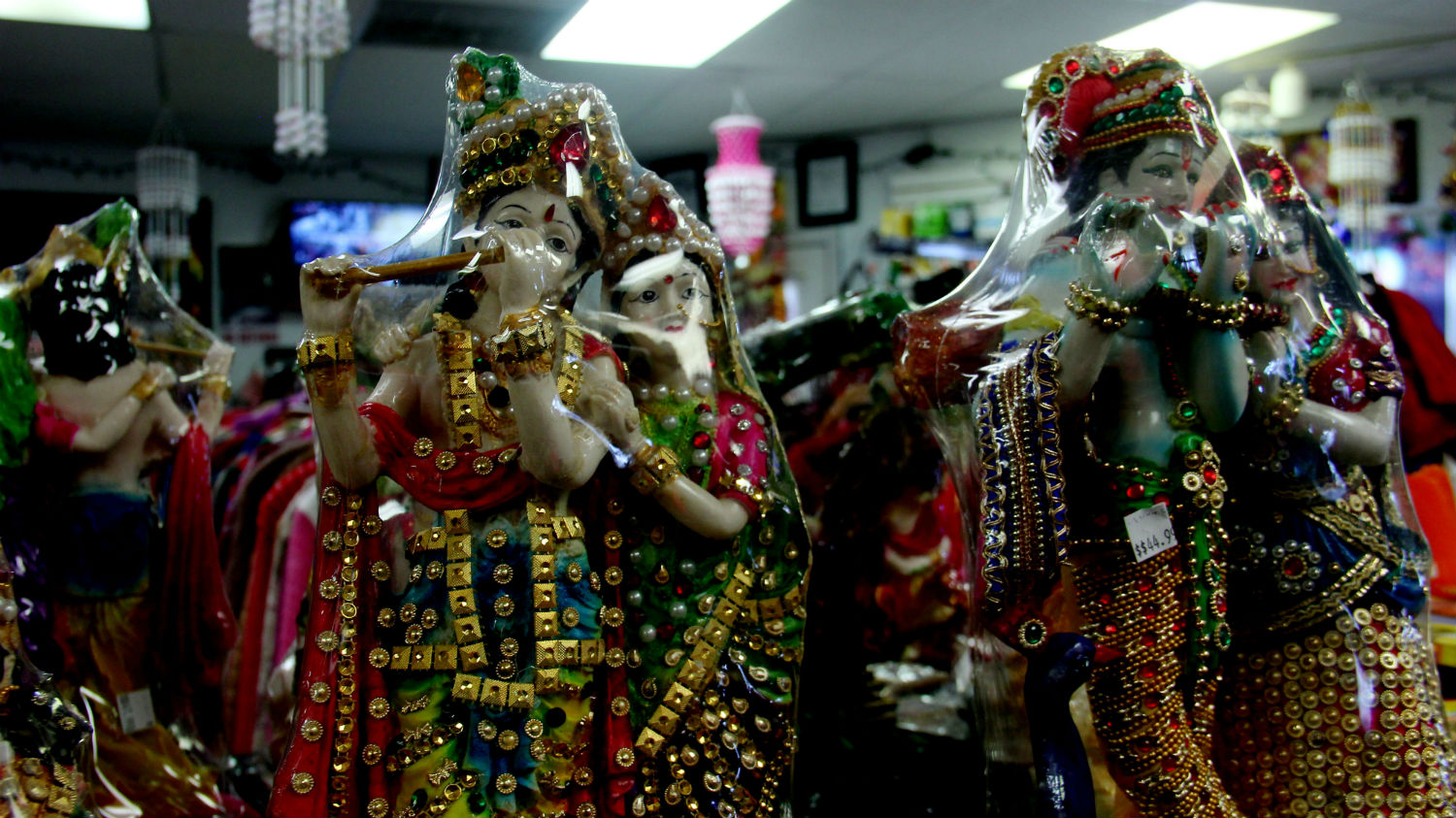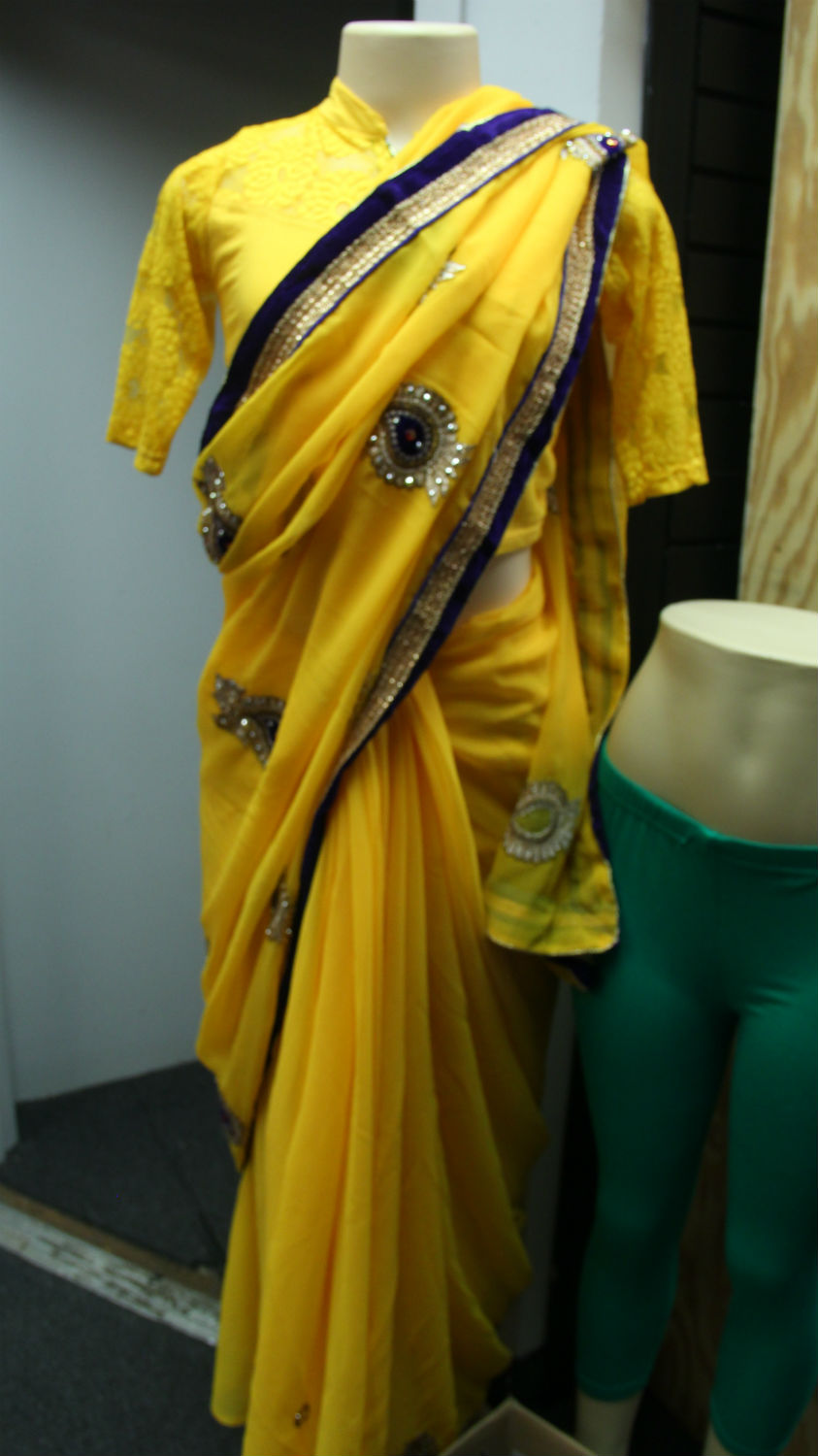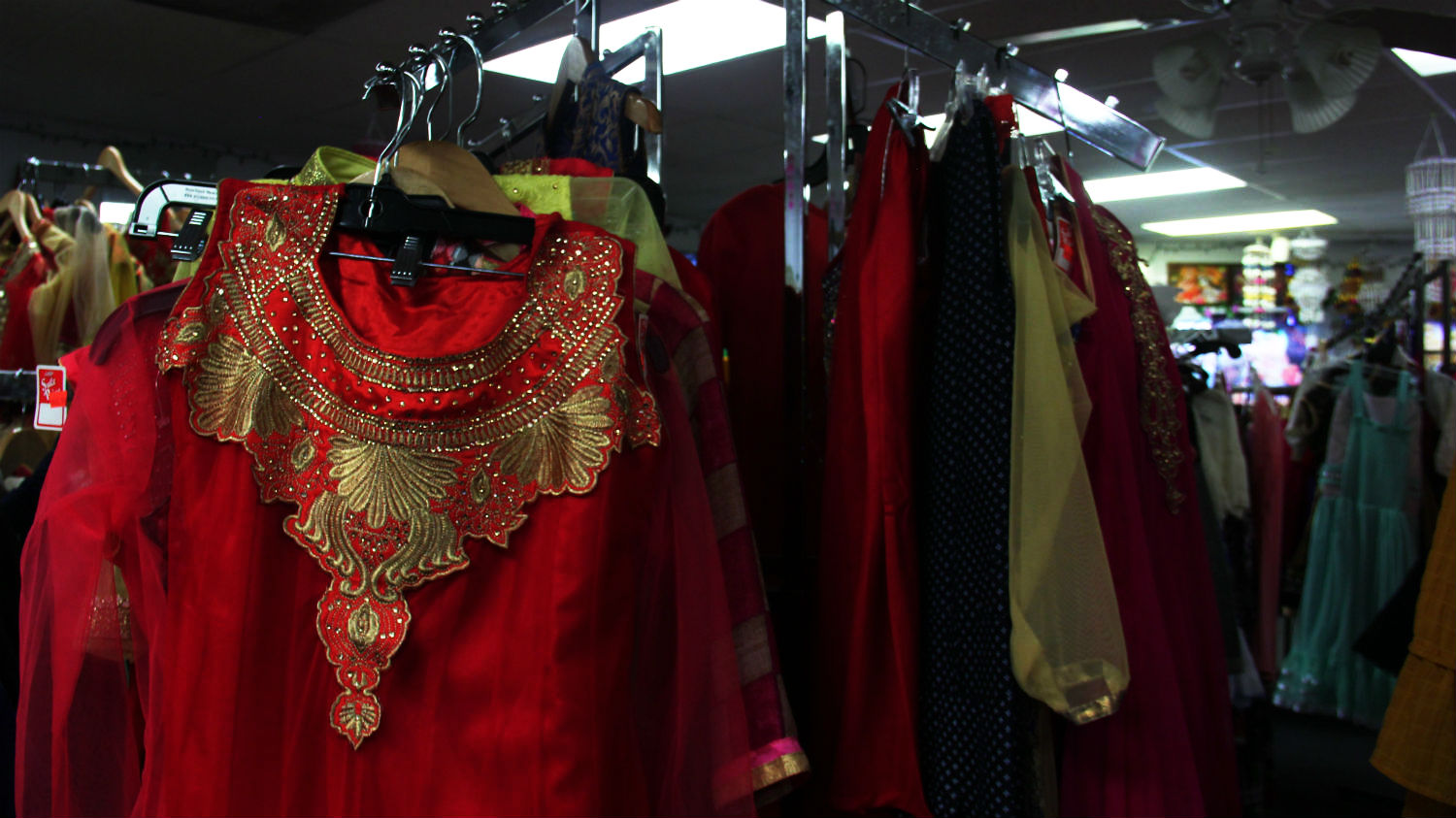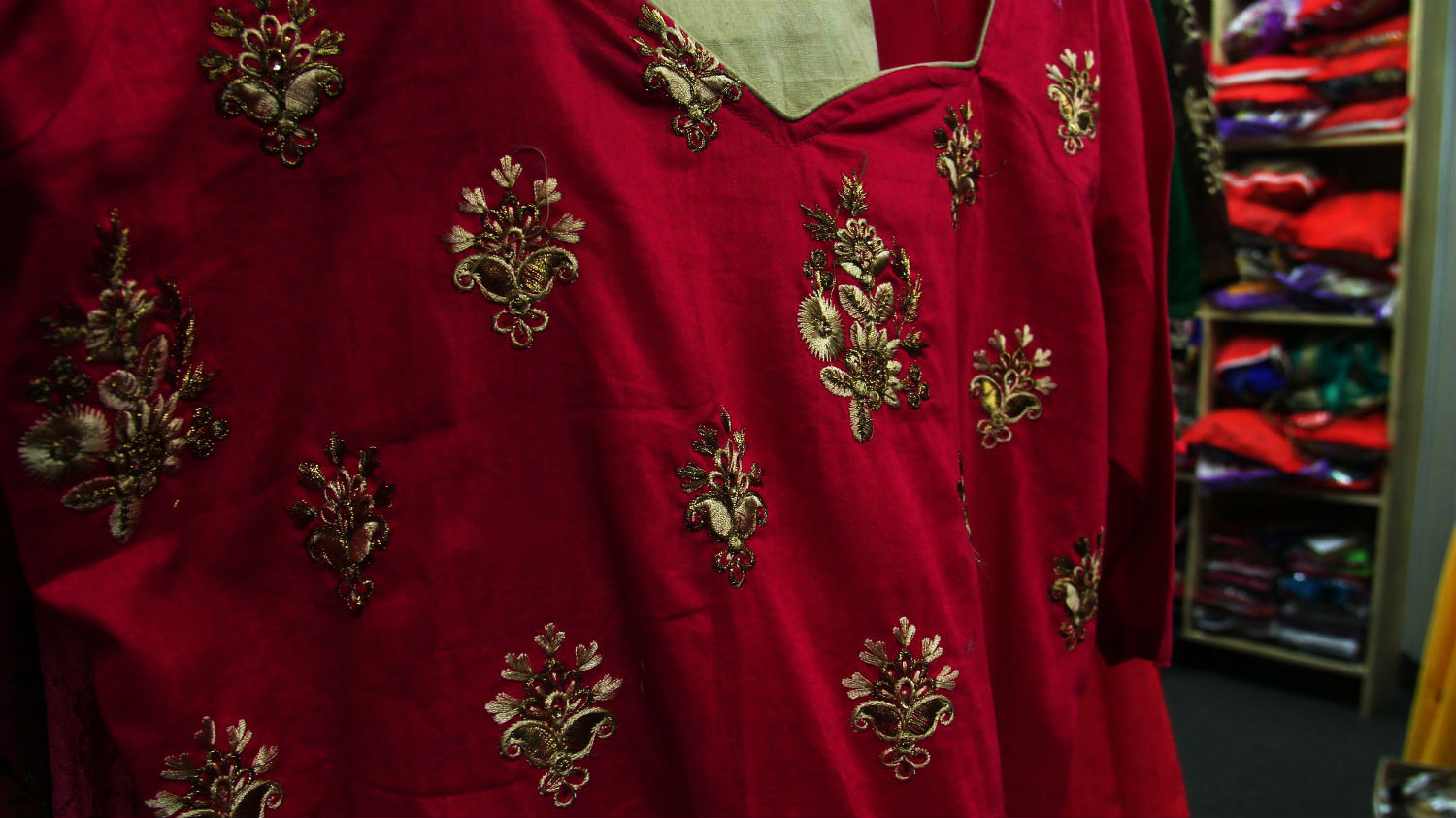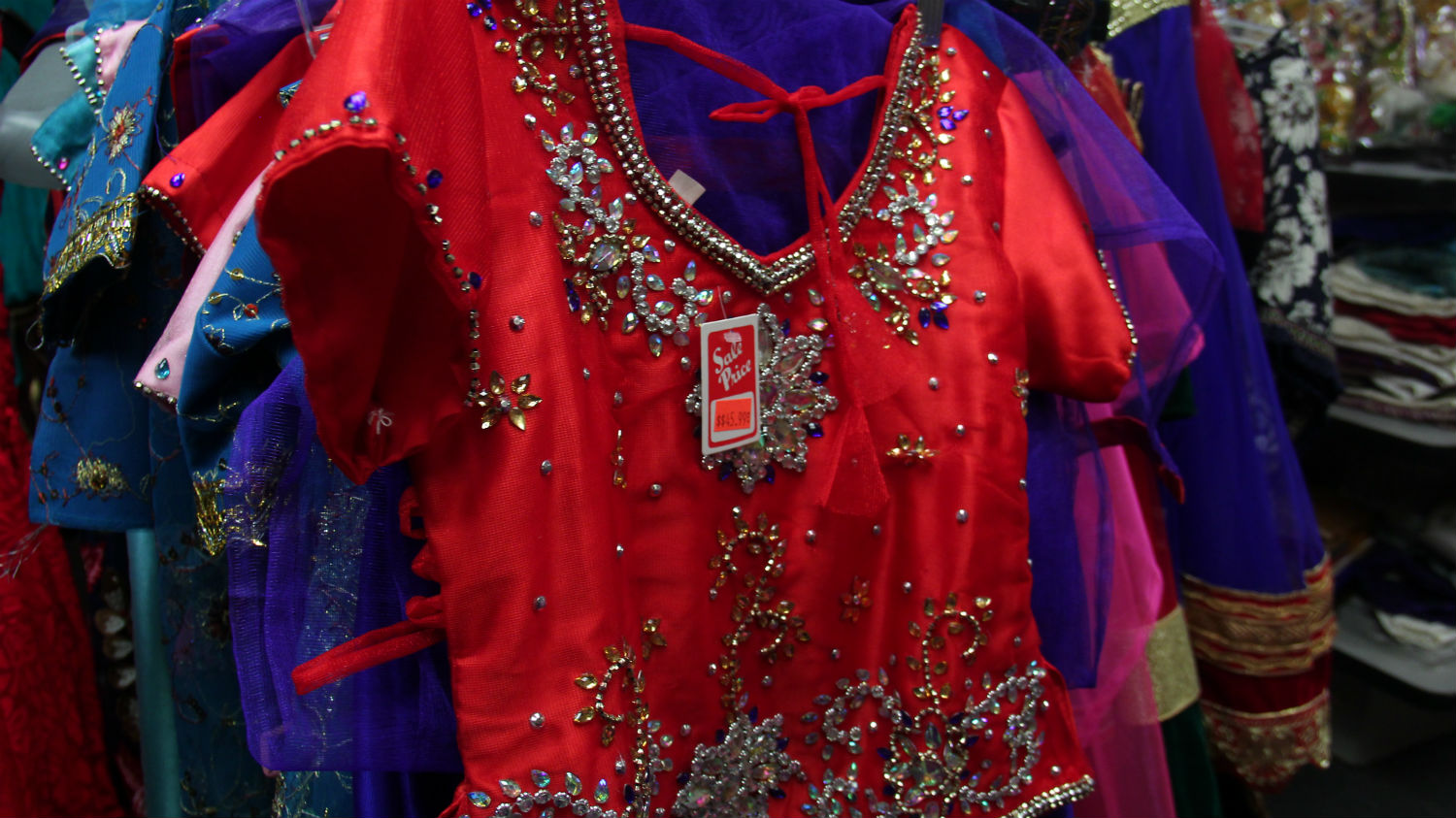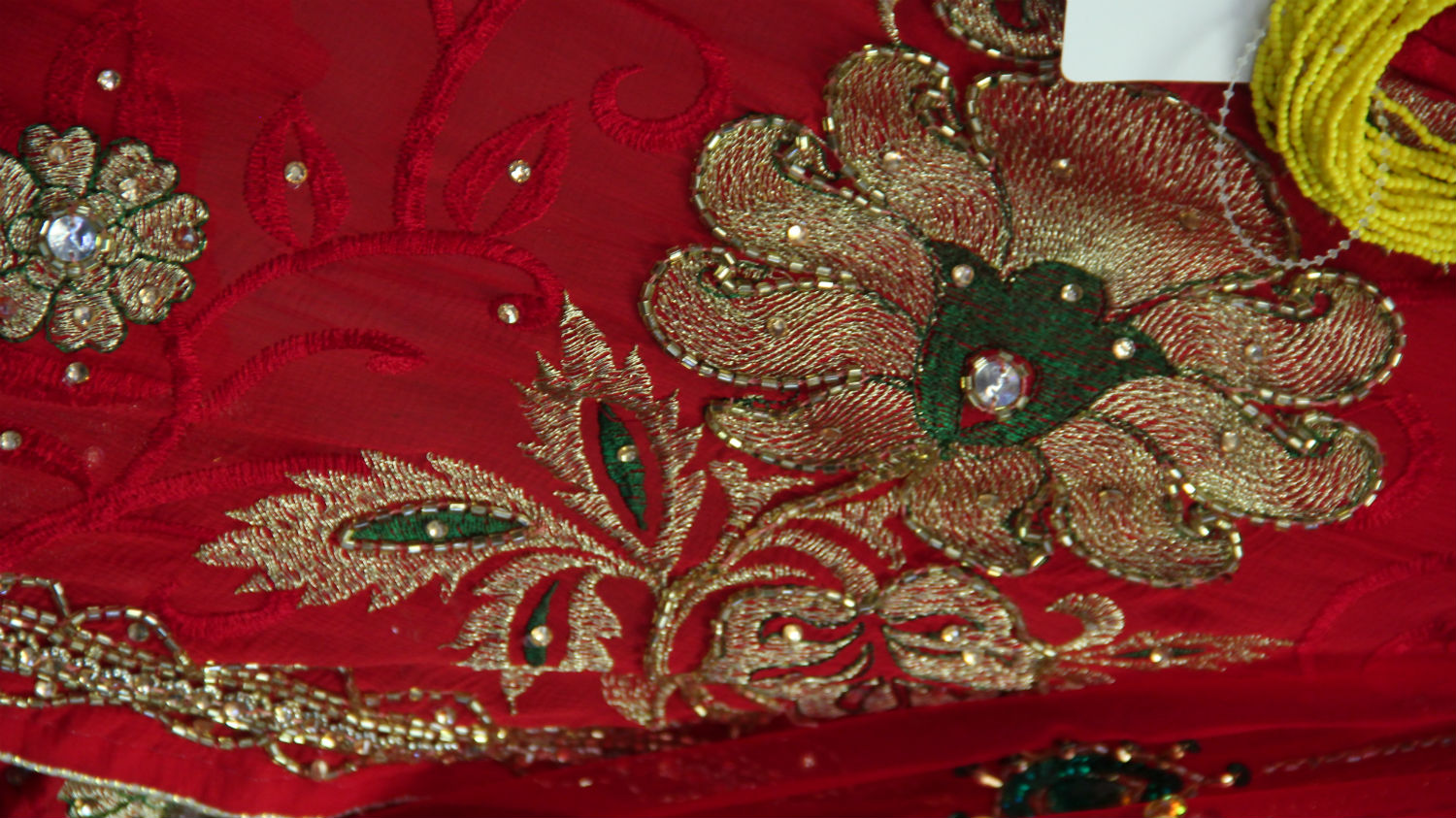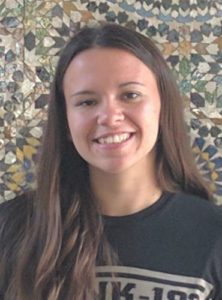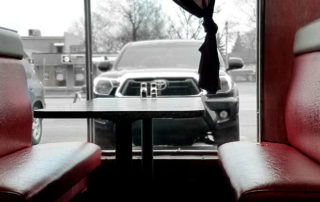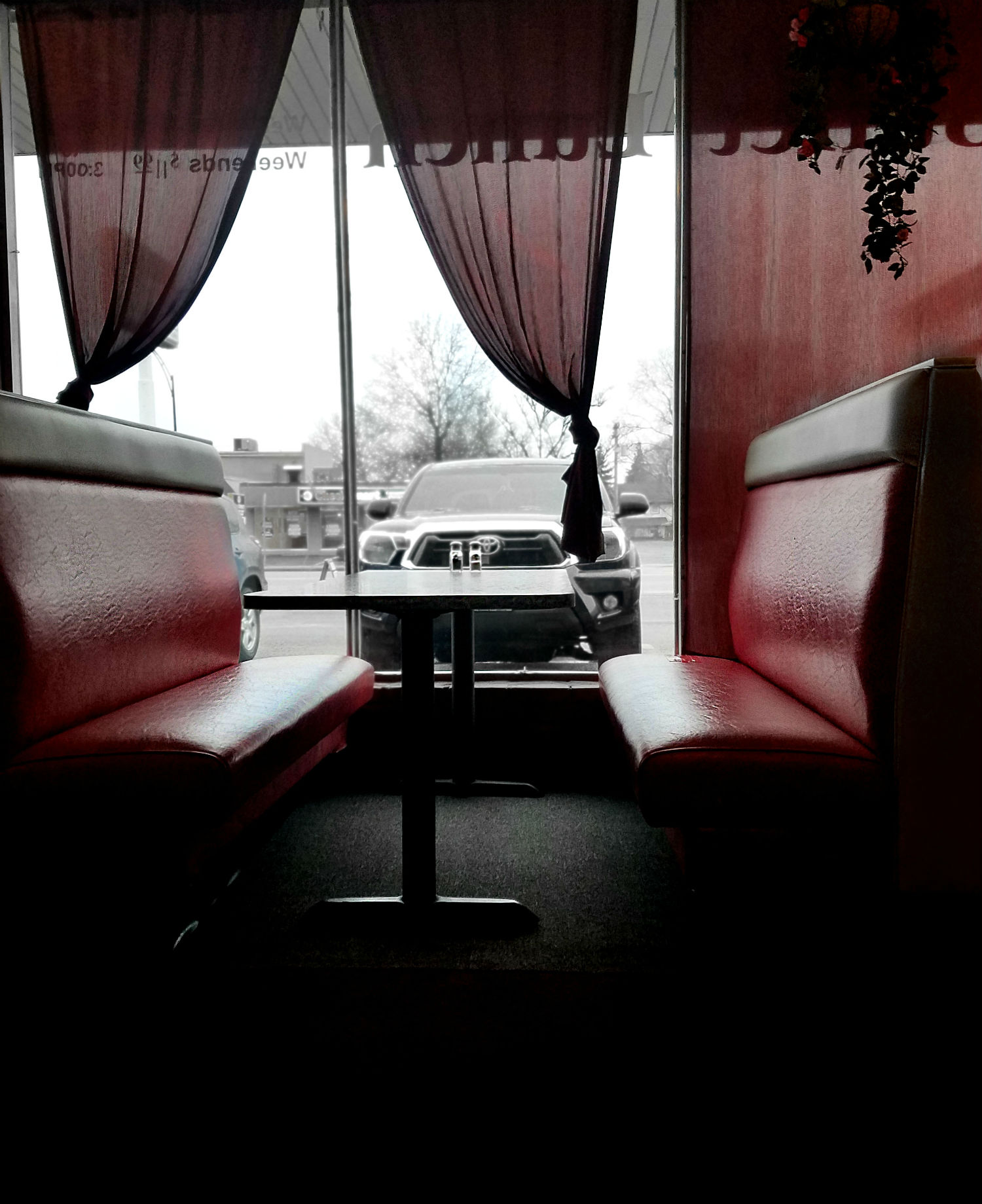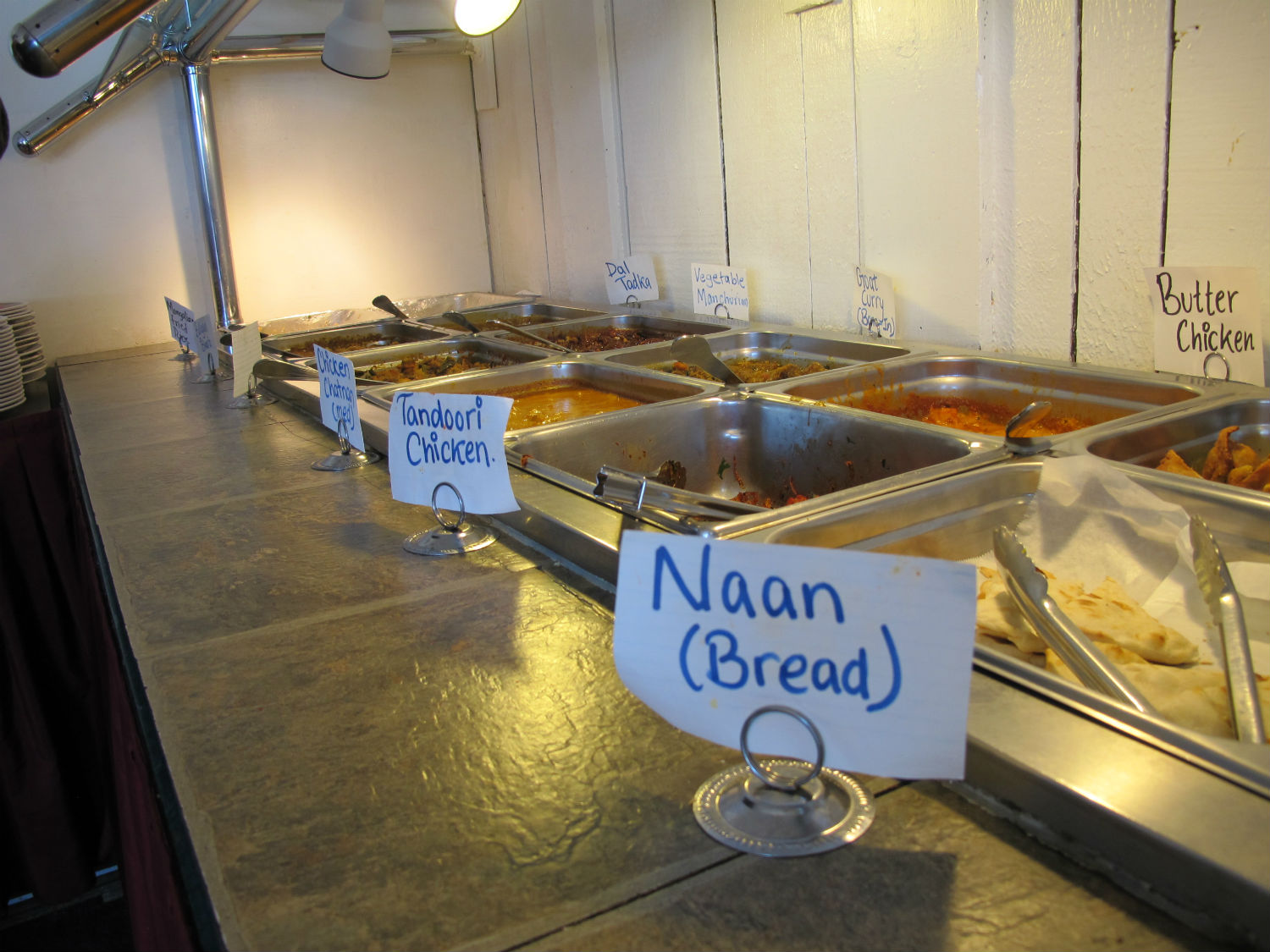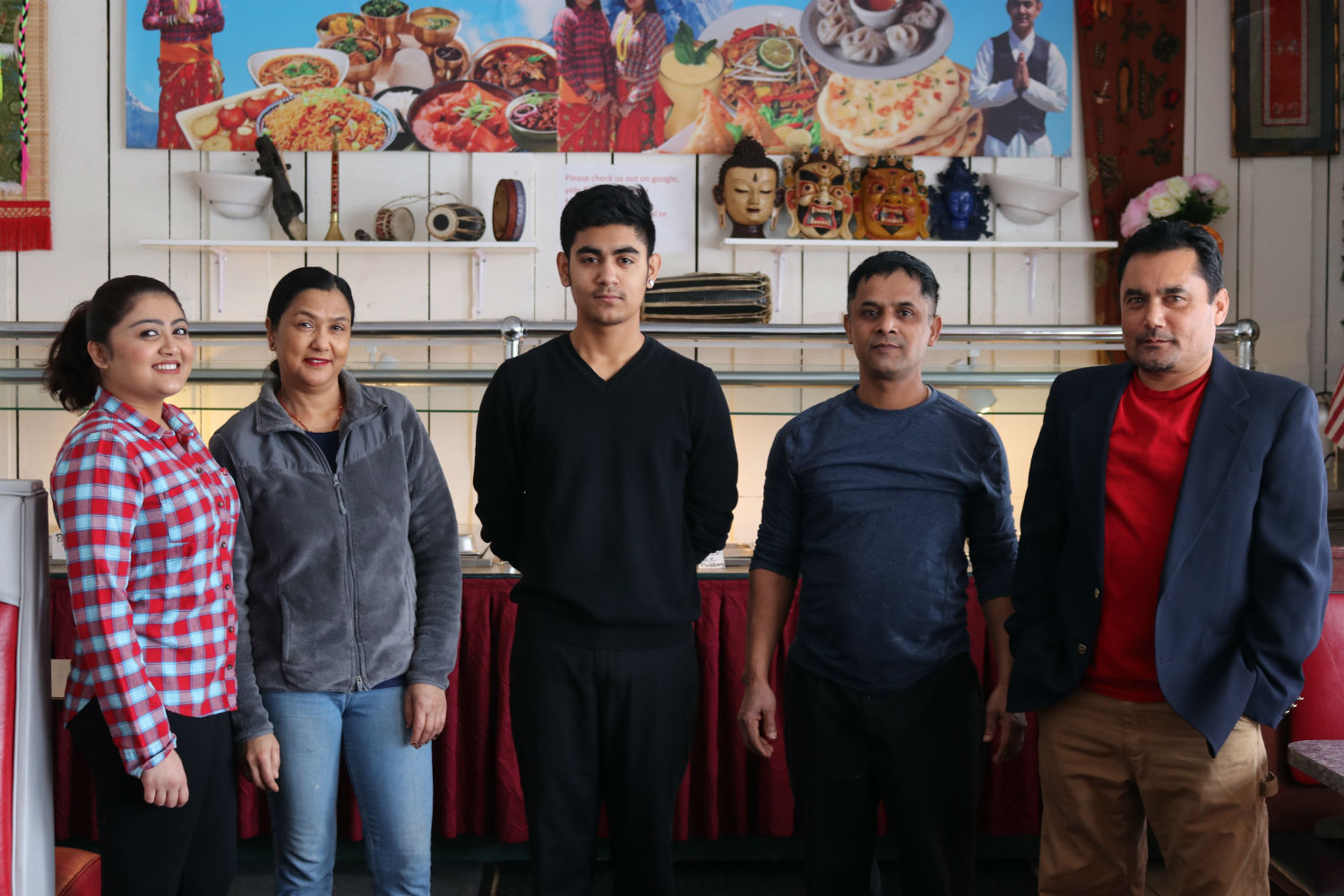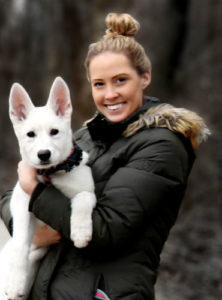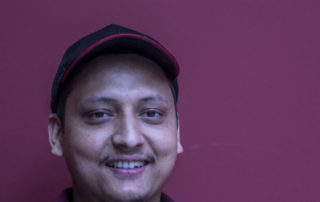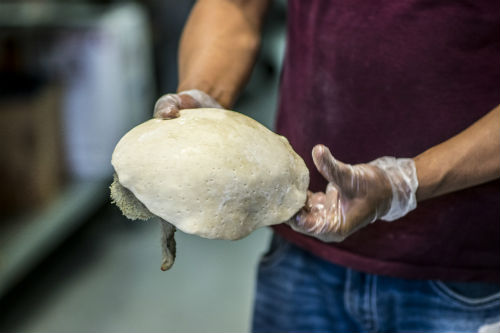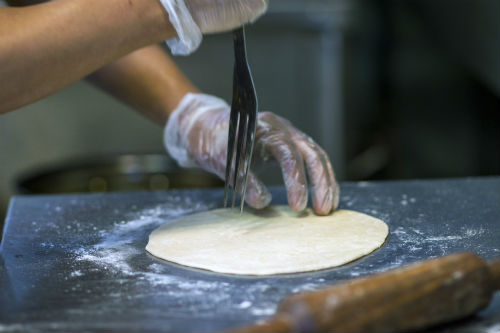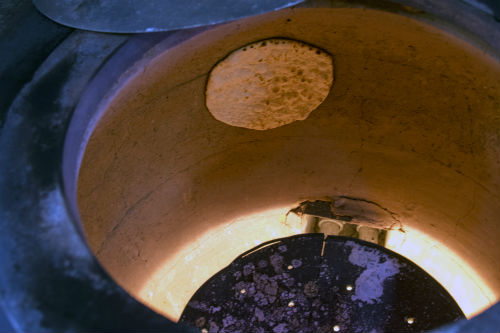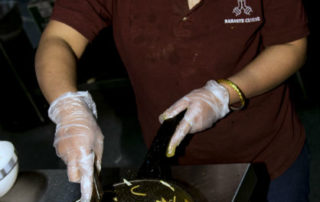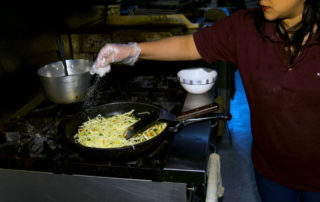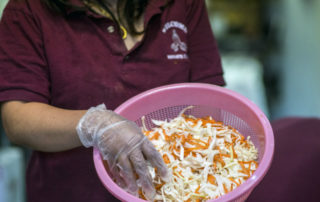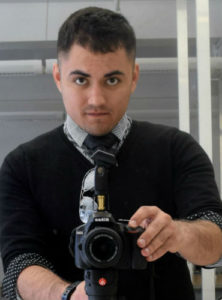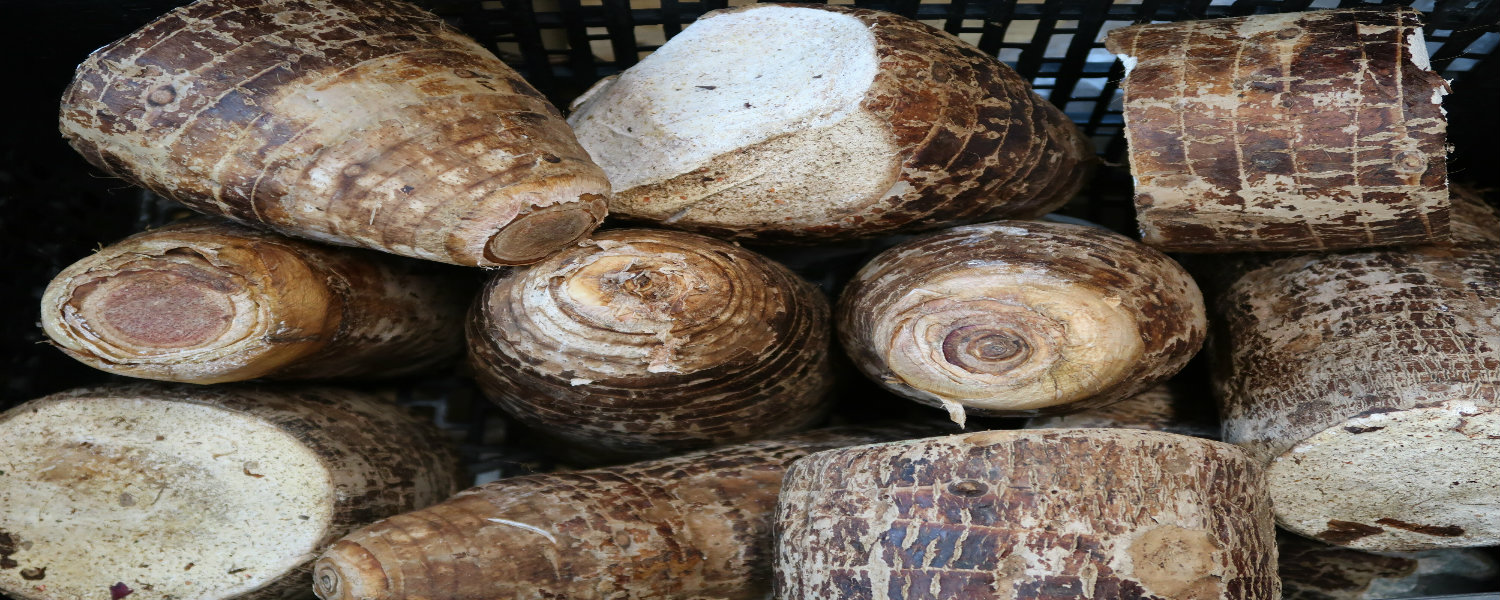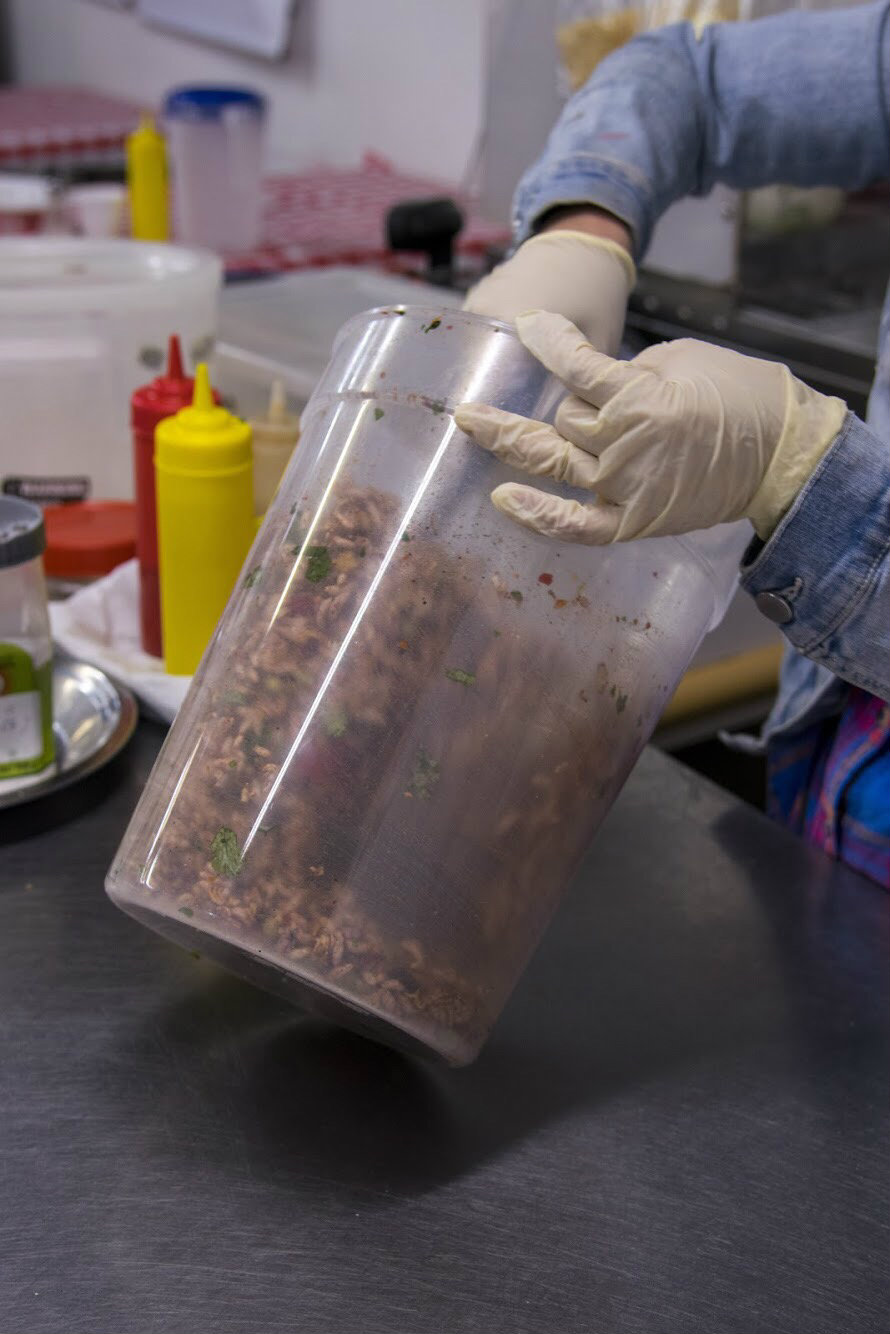A Tale of Two Refugees: Interpreting a Foreign Land
A Tale of Two Refugees: Interpreting a Foreign Land
Language is everything. The very fabric of communication. Every day, knowingly or not we as humans use language to interact and interpret our very lives.
Imagine having no place to call home. Forced to reside in a refugee camp. Eventually deciding to go over to a completely new country and begin life again. A foreign country. A foreign tongue. This story may not be your story, but it is the story of thousands of Nepali refugees who have found their new home in the soils of Akron, Ohio. Two of these people are Bhim Dhungana and Neema Tamang. Bhim and Neema have different stories but share a similar passion for language and achieving success.
Bhim first arrived in the North Hill area of Akron in 2008. Bhim was one of the very first refugees to help establish the North Hill Nepali community and make it what it is today.
“When we come in 2008,” Bhim tells me, “there are very few homes.”
Bhim was originally from Bhutan where he lived in a refugee camp for 16 years. Bhim does not share fond memories of this time.
“Camp life is no good,” he says, “It’s a waste of time when you have no goals.”
Bhim now works as the interpreting coordinator for the International Institute of Akron. His main goal being to get an interpreter for a business, doctor, or any place that needs interpreting services. Bhim still does do Nepali translation as a side to his main job at the institute. However, when he first came to the U.S. it was hard to find work.
“This was not a good time to be here in Ohio because there are not many jobs,” Bhim explains.
He found work as landscaper, a cell phone salesman at a mall kiosk, and the International Institute before landing his current position.
I asked Bhim about identity and how hard it was to get acclimated to the changes of a new country. He mentions the language barrier as something that everyone must overcome. Upon first coming to the U.S. he found himself uttering phrases such as “How’s the weather?” In Bhutan, Bhim explained that strangers are more open upon first meeting.
“In our culture if you meet a new person you say, ‘where are you from? Where do you live?”
Still he found a way to make a little haven for the Nepali community in North Hill. He considers the Nepali people at large to be hardworking and friendly people trying to succeed like anyone else. Bhim learned English at six years old. He tells me that some do not understand him and that his English is akin to that of the Indian tongue.
Still Bhim likes to speak his native language of Nepali and even makes sure his three year old son practices it at home. Language is a way of preserving and shaping a cultural identity. However, Bhim does not like to view America as a melting pot.
“I would rather say it is an integrating pot,” Bhim says about America. “That means you not come over here and dissolve it, but you come over here and add up the culture. So it will be reaching culture.”
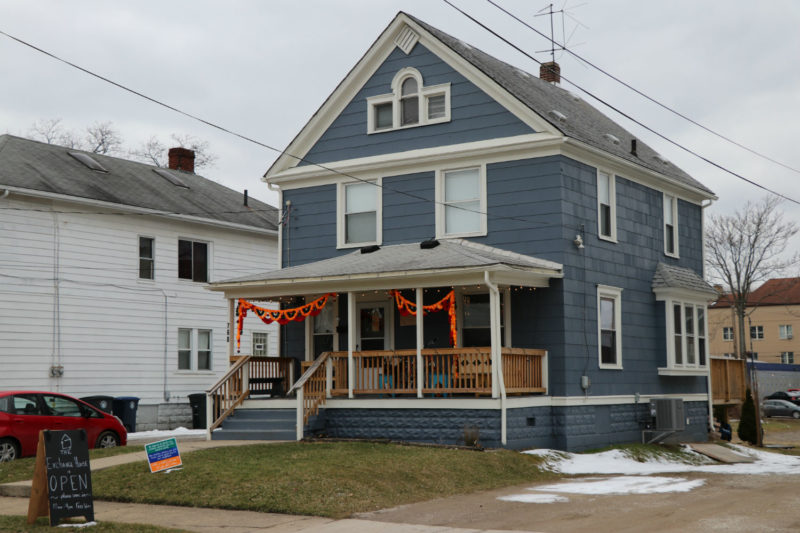
Neema Tamang is another refugee I spoke to about their transition to America. Neema and Bhim both share the similarities of ending up in Akron, but their personalities are different. I first met Neema a few weeks prior to our interview. He was performing a silent act on stage. It was in a darkened room at Akron’s Summit Artspace with Neema in the spotlight. This particular performance had the added difficulty of conveying words with no language but body language. Interesting considering Neema speaks Nepali, Hindi, English, and his native language of Tamang.
He grew up in a refugee camp in Eastern Nepal for 17 years before he and his family came to America. Though, it was not something he thought about his whole life.
“I didn’t dream about it,” Neema says. “I just came.”
Oftentimes during our conversation, Neema’s brain is going a mile a minute as his words overlap in excitement to answer my questions. When first arriving in America language was the toughest barrier to overcome.
“The first year was crap,” he flat out tells me with a smile. Soon after, he got involved in theater and performing. For Neema, performing is something he had done a good majority of his life dating back to his days in the Nepalese refugee camp.
When Neema was in seventh grade he was a co-founder of the Suruwath Theatre. This theater allowed for artists to perform among the seven refugee camps in Nepal. It was at a cultural fair at school that he became involved in theater again.
“I was always dreaming about it and sharing with my friends,” Neema tells me.
Neema began working with the local Akron Gum-Dip Theatre. The Gum-Dip Theatre is where Neema does a good majority of his performing and works with Artistic director Katie Beck.
We talked about being involved in the community and preserving a cultural identity. Neema does not like to use the word “identity” in the traditional sense of referring to a place of origin or an ethnicity. Instead, upon meeting a person who may ask of his origin he will simply say what he feels.
“I will introduce myself as an artist.”
About the Author
North Hill Refugees Connect Through the Language of Dance
North Hill Refugees Connect Through the Language of Dance
Babita Darnal and Rose sweep their feet along the red rug in their living room. Babita’s canary yellow dress is a sail while she twirls, guiding her daughter to dance. Their laughter bounces through the hallways and into the kitchen, where a fresh pot of rice sits on the stove.
Babita is teaching her seven-year-old daughter traditional Nepali dance. Babita is a Nepali speaking Bhutanese refugee; she immigrated to the United States in June 2009. With YouTube videos of Nepali music playing in the background, they dance together while Babita reminisces to 20 years ago. She and her brothers would dance in a bamboo hut to the small cassette radio sitting on their mud floor. In their Nepal home, there was no electricity, but the sun would seep through the door as they stomped together all afternoon.
“Our culture is not lost, it depends upon us,” Babita said. “We believe in our culture.”
Though Rose was not born in Nepal, she knows where her roots are. Through dance and dress, Babita is able to share Nepali culture with her daughter.
North Hill has become a haven for refugees like Babita, with cultural hubs like Nepali and Indian grocery stores to traditional dress shops thriving across the neighborhood. The Himalayan Music Academy (HMA) has become a staple in the community. Rose attends dance classes at HMA on the weekends.
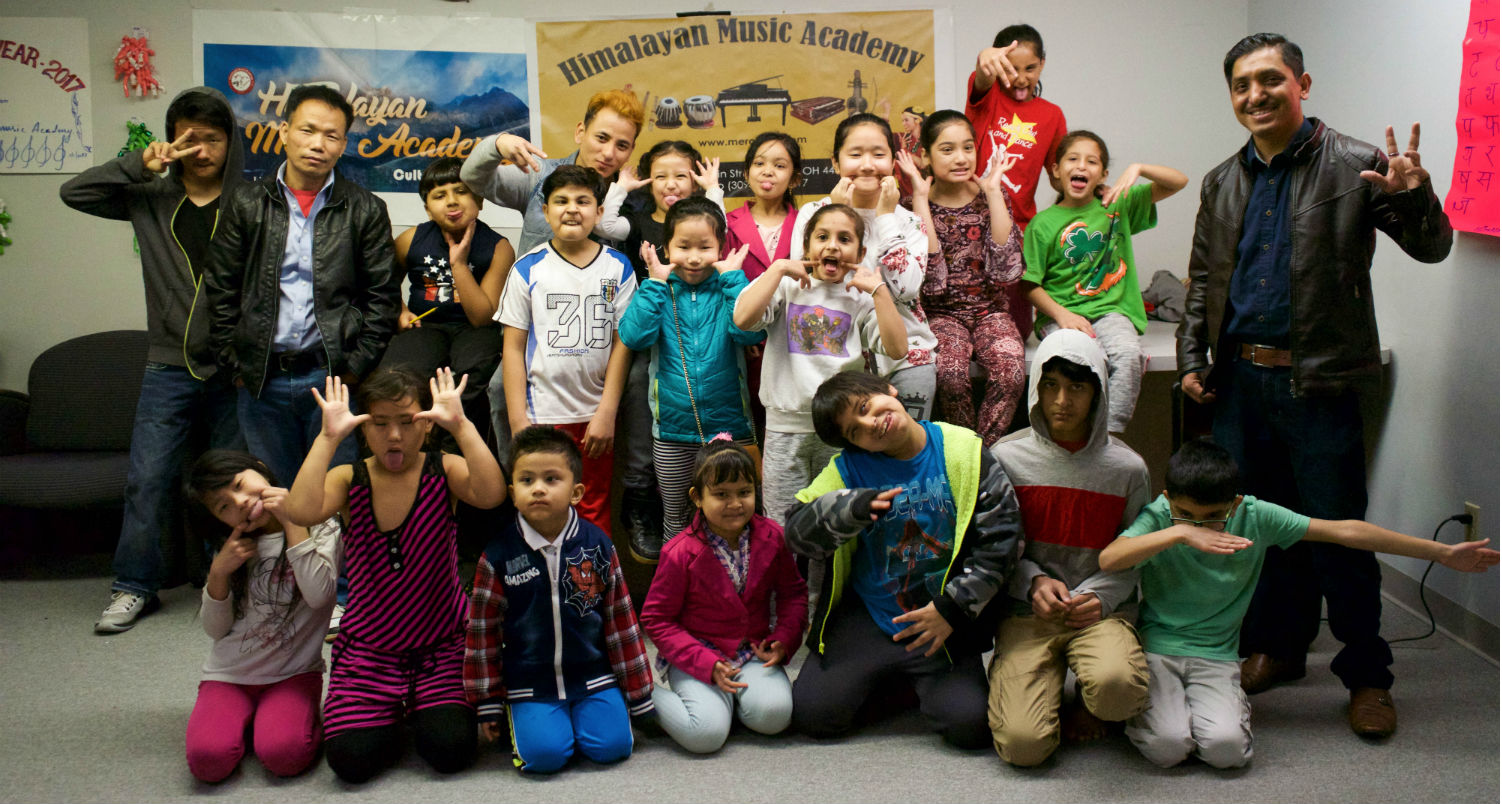
Puspa Gajmer is the founder of HMA. He immigrated from a Nepal refugee camp to Illinois in 2011, but the Nepalese community was small there. With the suggestions of friends and family, he then packed his bags and headed to Akron in 2013.
Puspa plays a wide variety of instruments including the guitar, tunga, mandolin, piano, drums, madal and naal. His teachings began with a guitar in his new living room. The seeds of music he planted flourished into HMA, which opened in 2016. They currently offer dance, music, language and law classes.
“I want to give our music to our next generation so they can give it to the next generation and on,” he said.
HMA charges a small fee, but will never reject a family that is struggling financially. Their doors are open to all people, Puspa said. Residents from Erie and Columbus make the trip to attend classes, and while the majority of the students are Nepali, Americans from the community come to learn the language as well.
“Music is the expression of all feelings between a group of people. You can communicate better than with language, you reach people immediately,” Gopal Ghantani, a language teacher at HMA, said.
With dry erase markers and a white board Gopal Ghantani teaches 30 to 40 students Nepali at HMA, which is a language spoken by 17 million people across the world. Gopal has been teaching at the academy on weekends for 8 months and living in the United States since 2013. He also manages a full time job at Intra-National Home Care Services where he works with disabled refugees in Cuyahoga Falls.
“Music is the backbone of the community,” he said. “And the community is a part of my family.”
The Dance
Store Map
About the Author
A Common Thread Ties Residents of North Hill Together
A Common Thread Ties Residents of North Hill Together
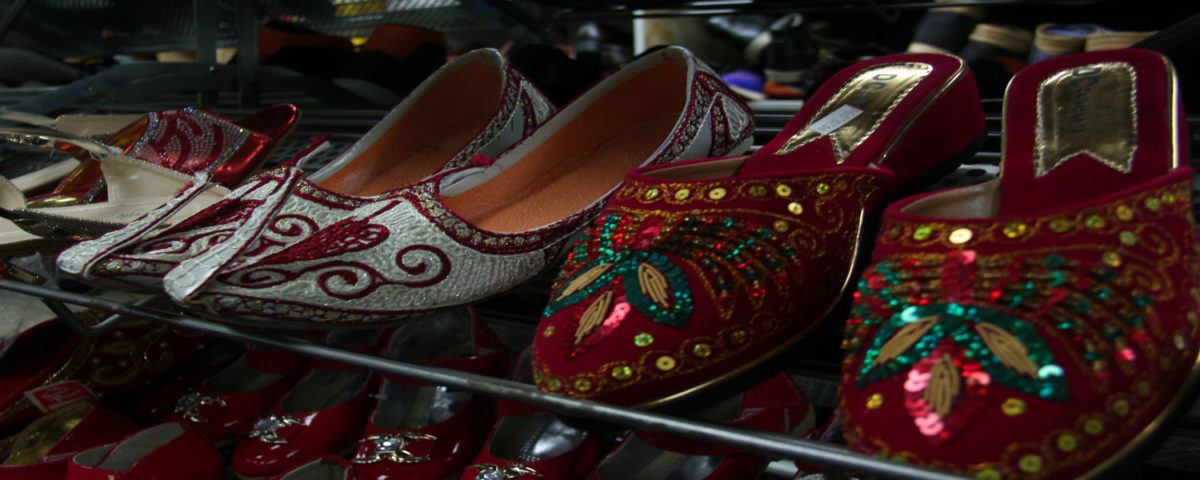
(Traditional shoes and clothing at Himalayan Bazaar)
Every color of the rainbow hung up on racks; an array of gold thread, sparkly gems, and elegant jewels. The clothing of a culture defines it in the most physical ways and creates a common identity for those apart from it. Clothing stores and organizations in North Hill, such as the Himalayan Bazaar and Woven in Exile bring the beauty and vibrancy of Nepali tradition to the sometimes dull streets of Akron.
These stores and organizations are not just for creating and selling clothing; they also act as a means of bringing Akron’s large Nepalese-Bhutanese population together and incorporating them into a unique network that cannot be found anywhere else in Akron.
In addition to restaurants and convenience stores, clothing stores dot the streets in North Hill, like the Himalayan Bazaar. At these stores, residents can find an array of colorful clothing used for traditional purposes, such as religious and cultural holidays, weddings, and other special occasions.
The Himalayan Bazaar is located at 272 East Cuyahoga Falls Avenue. Here, people can find an incredible variety of clothing, both traditional, and some with more “Western influence” as well.
“We sell traditional clothes because the current generation did not forget our tradition,” said Tulasi Budathoki, whose family owns the store.
Tulasi’s family lived in Bhutan but was moved to a refugee camp in Nepal when she was young. A few years ago, they moved to Hartford, Connecticut, but eventually relocated to Akron because of how difficult it was to find a job in Hartford.
The Budathoki family opened the Himalayan Bazaar in December 2016.
Other clothing stores offer similar products to North Hill as well, such as Khusie New Collection. While these stores may compete with one another, together they offer residents a variety of beautiful clothing, jewelry, shoes, and other items imported from Nepal and India. Together, they help the residents of North Hill maintain their cultural identity while trying to navigate a vastly different Western world that demands conformity and emulation.
Woven in Exile is another network of Nepalese-Bhutanese people, tied together by clothing and textiles. In Woven in Exile, started by Terry Kuhn, Bhutanese women come together to learn and practice the skill of backstrap weaving. Here, the women can weave, create a network among each other, and make money by selling their work. They also create a variety of items, like yoga bags, handbags, and placemats. These items feature a rainbow of vibrant colors and designs.
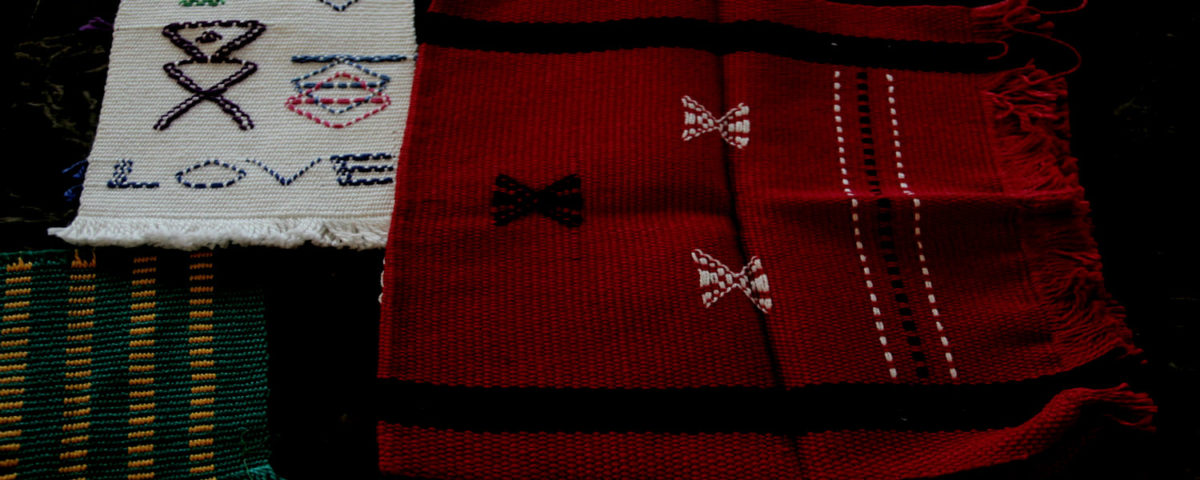
(Some of Bishnu’s weavings from Woven in Exile)
For members of the group, like Bishnu, it made a huge difference in her family’s integration into life in the United States.
“One reason [she enjoys the group] is in 2009, there were not any jobs. When she weaved, we would get a little bit of money, and she can pass the time by weaving also,” Durga, Bishnu’s husband, translated for her.
For the Nepalese-Bhutanese residents of North Hill, clothing is more than just something to cover one’s shoulders and legs. It is apart of their identity. They may not wear the clothing of their home countries frequently, but when they do, it means more than just a special occasion. It represents a time and place where they can express their heritage and culture to their heart’s content.
A close view of the store
Store Map
Abou the Author
The Everest Story
The Everest story
What is home?
Home is multiple places. A place where you feel comfortable, secure and independent. Home is a temple where you can sit and pray to God. A place where you can cry freely. Home is a place where love is.
To Lishan Poudel and his family America is now home. America has given them freedom and more opportunities than they could have ever imagined.

According to Poudel America has been a “Blessing in Disguise.”
Life before America
Before America the Poudel family lived in Southeastern Bhutan in a district called Neoli. Neoli was a far away village where the people were mostly farmers and worked for government companies and institutions.
“There was no huge exodus of people for others to own businesses,” Poudel said. “We didn’t have businesses and all sorts of opportunities like here in the United States.”
At age 25, Poudel was forced out of Bhutan with 100,000 others, including his family, to live in refugee camps located in the nearby country of Nepal.
There was a total of seven refugee camps scattered throughout Nepal.
Poudel and his family traveled through India to get to their refugee camp located in the Japa district on the Eastern side of Nepal.
The camp was called Qubanobe camp.
Poudel lived in the Qubanobe camp for 16 years with his wife, kids, father and mother.
According to Poudel the homes were made out of bamboo and were only 5 feet by 8 feet big and housed six to seven family members.
“It was like a slum. There was really not enough space to move around,” Poudel said.
The refugees were not allowed to go outside and were only given basic human material needs such as food, and to some extent, medicine. The refugees also had no opportunities to learn new skills or to earn some sort of extra pocket expenses.
“We really had a wretched life in the refugee camps,” Poudel said. “A really hard life.”
America
July of 2009 is when this blessing of disguise came to Poudel and his family.
Poudel and his family left the wretched refugee camp and flew to America to start a new life. The family landed in Washington State and lived there for several years.
In Washington Poudel earned money by working as a research assistant in a biology lab where he tested animals such as monkeys and dogs.
According to Poudel the refugees started communicating with each other through phones and computers. They would talk about things like “where is the best place to settle” or “ where has the most jobs and cheapest housing.”
“In Washington people started moving from one state to another. Kind of like a second migration,” Poudel said.
In July of 2013 the Poudel family migrated to Akron, Ohio and never left.
In Akron, Poudel took care of his father for six months before he got a job at a nearby pizza job where he worked inside making pizzas and taking orders.
After living in Akron for three years, Poudel saw a need in the Nepali refugee community that lived in the area.
Poudel decided that he wanted to run his own business and open a Nepali restaurant to serve food to his people and to Americans.
According to Poudel he was able to buy a restaurant with the help of his family members.

“We have a culture where if my wife, daughter, or relatives have some money we put it together. We help amongst each other when someone wants to do something or if someone is in trouble or needs help,” Poudel said. “So we help lend or borrow money within our own relatives, friends and community.”
According to Poudel it was a very long and hard process to get the restaurant up and running.
“In the beginning I had to spend three months rent without earning a penny. I nearly lost hope at the end because I was only hearing about the problems,” Poudel said. “The more I worked the more problems kept piling up.”
After three longs months and hiring many professions later, Poudel was finally able to open up his restaurant “Everest”.
Hopes and dreams for Everest and the Nepali refugee community
According to Poudel, Everest is just a small family business with only six workers.
Someday Poudel hopes to make enough money to open a chain of restaurants for other Nepali refugees to work at.
“There are many community folks who have good cooking skills who come to my restaurant seeking jobs because they have problems finding other jobs,” Poudel said. “Sometimes I feel bad like why don’t I have more money to open restaurants to give jobs to these people.”
Along with building other restaurants, Poudel also hopes to raise enough money to build the Nepali community a Hindu Temple.
Poudel feels that a lot of these depression and mental problems that consist within the Nepali refugee community would be solved by building a Hindu Temple or community building.“One of the main reasons why many community folks particularly elderly, are commiting suicide is because they are being neglected and isolated. They have nothing to help with their emotions and their feelings. So if we can help build a temple, it will help minimize their frustrations, depletions and their mental health and stop people from committing suicide,” Poudel said.
Store Map
About the Author
An optimist’s opportunities
An optimist’s opportunities
Inside the brightly red but dimly lit Namaste Cuisine, Abi Bhandari fiddles with a remote, pointing it at a television screen attached to a support pillar in his restaurant. Standing at five feet and seven inches with sleek black hair and olive skin, Abi furrows his brow as he attempts to access Youtube; the arrow buttons on the remote refuse to cooperate. “It’s nice to play traditional music, if the remote will let me.” Abi jokes. But this commonplace struggle are but one of the many that Abi has had to endure throughout his life to arrive at his own restaurant.
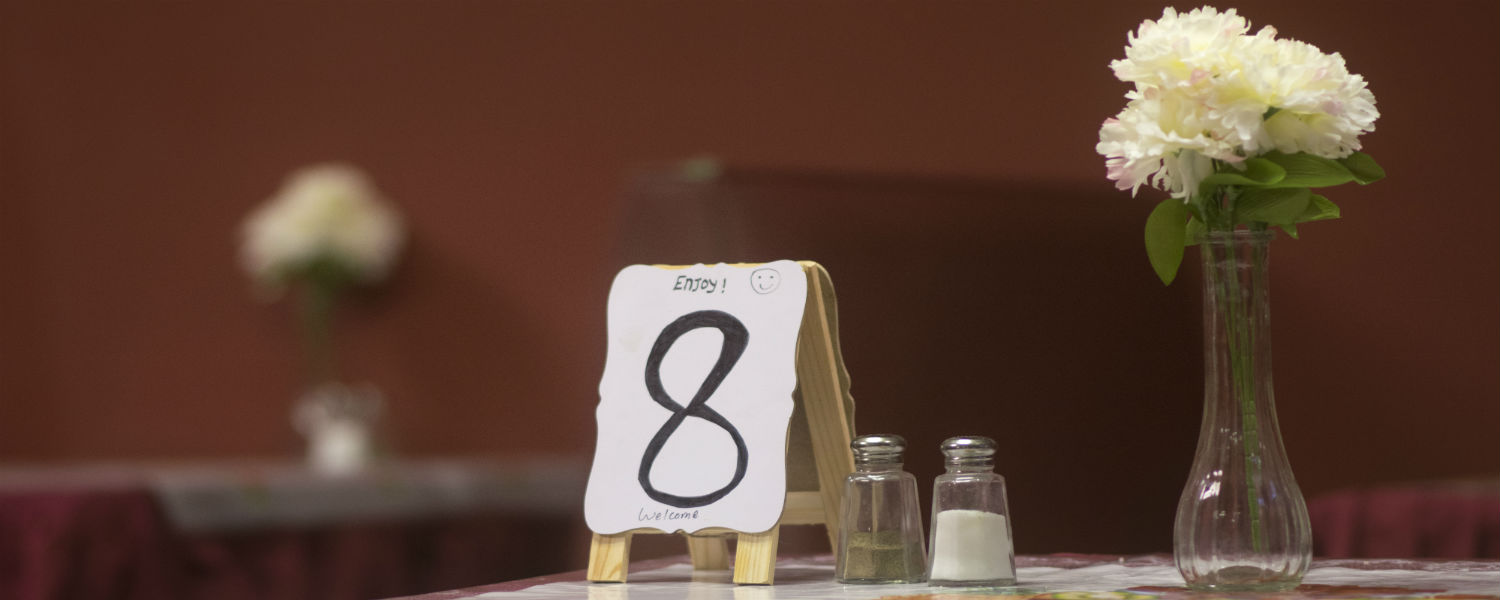
Born in Bhutan in 1989, Abi doesn’t recall much from his infant years. “I did not know anything about Bhutan. Like I know about the history of the land but I have no idea what it looks like,” Abi recalls. “My parents had family and friends in Bhutan, but I was only two and a half years old when we moved to Nepal.”
Bhutanese citizens were being deported from Bhutan during an ethnic cleansing event carried out by King Jigme Singye Wangchuk of Bhutan during the late 90’s. Several refugee camps were built in order to accommodate the incoming migrants.
Camp Office, located in the humid plains of Sanischare, became Abi’s new home; the climate revolving between a sultry season and a showery season. The camp is a collection of wooden thatch buildings adorned with colorful laundry set out to dry. Wooden makeshift fences line the dirt roads perforated through the lush, green gum trees, marking where each property started and ended. It was a community of like minded refugees who strive for a better future. At its peak population in 2006, there was over 21,000 of refugees residing in the camp.
“Nepal would be like summer in Ohio but for most of the time,” Abi said, quickly adding “but no snow.” with a warm grin.

Living with his parents and seven siblings, Abi attended school provided by humanitarian workers with all the other refugee children. Abi was a dedicated student who labored arduously for a better future for himself.
“I had a desire to go to school,” Abi said. “We had minimum stuff when it came to things like food and clothes. We were not really hungry, maybe sometimes, but we had enough.
But his new home always had a way of reminding him that he was merely a refugee in Nepal.
“I graduated but it was hard. We didn’t start out with any hope for the future. I don’t know what I could do in the future, because I didn’t have citizenship and nobody is going give me a job,” Abi said. “ I had to study, but studying is not for the job, it’s for the knowledge. That’s what our teachers would tell us.”
As a refugee in Nepal, Abi had little prospects for his future and grew restless during his teenage years.
“It was frustrating because anyone can feel frustrated when there’s no hope. Like we had to depend on the organization in the camp for food. Like what if someone is giving you, for years and then stops, what will you do? I wanted to be independent and provide for myself.”
Abi found part-time work as an english teacher, but with a drive to find a better life, he turned to International Organization for Migration – an intergovernmental organization that aids individuals in finding a home. Once he submitted his application and attended various screenings, he had nothing more to do but wait for a response. And after two years, Abi received a response: he’s leaving for America.
“They had a system, I can’t exactly remember but I know once they approve, they will call you through the phone to tell you and give instructions to go to health inspections and a lot of things,” Abi said. “You have to learn the history and laws of the country you’re going to. It felt awesome when they told me.”
Selected to settle in America, land of opportunity and immigrants, it was enthralling for Abi.
“Like I’m going to a country of opportunities where everyone wants to work at.” Abi said.
Touching down at the Pittsburgh International Airport in 2009, Abi was placed in a job at a manufacturing company where he worked as a supervisor for three years. “It was good work and I felt that I was finally productive.” He didn’t mind much of the snow but appreciated the community he was able to find in Pittsburgh.
Love was able to find Abi as well, through a series of facebook messages and friendly referrals. Pampha, a women with bright red lips and sleek dark hair, was smitten by Abi’s approach. “I had a friend who knew her family, She lived in New Hampshire and we would start talking more once we finally met in person.” Abi said
After roughly a month, Abi proposed to Pampha and the two were married in January 2010, setting sights for a new home within America to start their family. They decided on Akron – a midwest rubber town that has faced recent hardships but was receiving an influx of Nepalese and Bhutanese immigrants, all looking for an opportunity they couldn’t find in the beginning of their lives.
Abi found a variety of success in Akron where he was able to help open a grocery store. “In October around 2013, there was grocery store that a family member and I bought, and turned it into the Indian Nepali grocery store,” Abi said. “I worked there for three years before moving to Kent.
With an opportunity to satisfy his youthful desires to establish a steady trade, Abi turned to traditional Indian and Nepalese food. He decided on a space within University Plaza in Kent, Ohio.

“Everything I had to build, almost like 90 percent of the restaurant I had to rebuild. The kitchen was messy and misplaced.” Abi recalls. “And there was like no floor; I had to do all the floors, walls and deal with the sanding and cutting of wood. I had people help me with some of the construction.”
Eventually, the weary and forgotten space was reborn with a new identity: Namaste Cuisine. Red booths line the wall embellished with Nepalese ornaments; tables are fitted with plastic covers that reveal colorful tapestry underneath for customers, each with a small number. The kitchen was moved to the back of the restaurant, where the aromas of paprika and baking naan waft to the front to greet the clientele.
Abi is optimistic about what the future holds for him. He describes his life here as a welcomed change from how things used to be back in the camp.
“Being in America, wanting to work, make a career, a dream, I think this is a really good place and this country is where I can do that,” Abi said. “We worked hard on getting there, especially for my three daughters.”
His endeavor lead him to accomplish a feat that many immigrants wish to achieve: U.S. Citizenship. Previously denied citizenship in Nepal, becoming an American was a powerful moment for Abi, recalling how he’d raise his hands along with other immigrants to swear by the United States and become citizens. “It was a proud moment where I could finally have the opportunities I was denied in Nepal.”
“We have a good place here. I have three. We have a three-month-old baby, a toddler and the oldest is 5 years old. She goes to school and was shy, initially she wasn’t happy to go but now she’s used to it,” Abi said. “It was hard because she was not good with English and she couldn’t speak much to the other kids.”
But reminiscing about his upbringing, Abi is happy that his daughter won’t struggle the same way he did.

“Making money requires hard work. I started as a refugee, so I don’t want my daughters to have a hard start. I don’t want them to grow up like me. They can say that their father was this refugee guy who’s a hard worker,” Abi said, looking at his oldest daughter play with an electronic tablet in a secluded red booth in the back of the restaurant.
“I just want a good reputation for my family.”
Store Map
About the Author
The Language of Food
The Language of Food
Born in the Samtse District of Bhutan, Hem grew up speaking Nepali. Despite the fact that his father, grandfather and great grandfather had all been raised in Bhutan, the king didn’t want those who spoke Nepali to reside in the country any longer. Forced out by the leaders of the country, his family sought refuge in Nepal. Hundreds of thousands of other families throughout Bhutan migrated to Nepal, but upon arrival, they discovered that they were not wanted. Outcasts from both the governing bodies of Bhutan and Nepal, they fled to refugee camps in the jungle on the border of the two countries.
This is where Hem lived for 22 years. As an infant, he arrived at the refugee camp in Goldhap, Nepal where they were kept “like animals.” “We didn’t have food or jobs, there was nothing. We sat for hours, for days.” Hem said while talking about life in Nepal.
One day the United Nations arrived followed by the International Organization for Migration. Hem’s family was to be relocated and they picked Dayton.
Once the settled in Dayton, he worked cleaning dishes in a Cheesecake Factory and then become a cook.
Hem talks of the first few years in America as hard and challenging. Everything is new. When you come to the United States, you do not speak English, you don’t know how you use a microwave, what a stoplight is, how to work the heat in your house. Everything has to be learned as if you are a child again. Hem and his family worked and learned and after two years, they made the move to Akron, Ohio.
Home of one of the largest Nepali and Bhutanese populations in the United States, the North Hill area of Akron, Ohio is where Hem found solace. With others that share his culture, he was able to establish himself as a leading community member and decided to open up his own shop to give back to the community. In 2015, he opened the doors of Nepali Kitchen, the first of its kind in the area. The restaurant was able to bring the taste of Nepal to Akron, bringing comfort to those who found refuge in the rubber city.
Since opening the kitchen, people of all backgrounds have entered its doors making Hem a man with many friends. The Kitchen has been the home of people from all over the world, allowing for conversations to flow, meals to be shares and cultures to be exchanged. Food is the fastest introduction, the easiest hello and the quickest way to the human condition.

